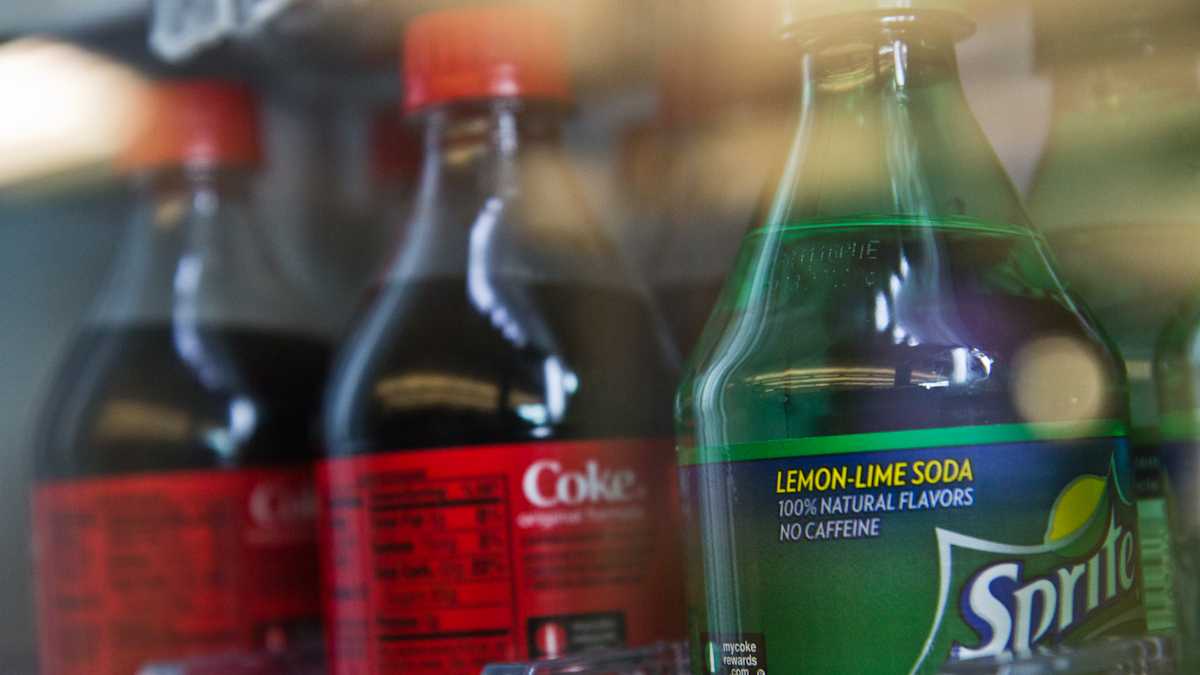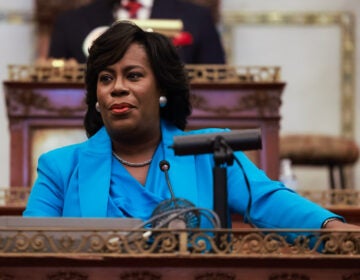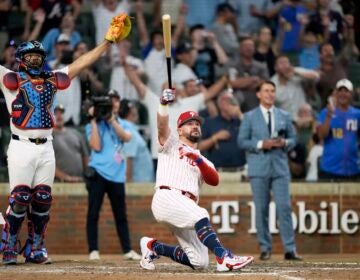Philadelphia is drinking less soda – how would that affect sugary drinks tax revenue?

(Kimberly Paynter/WHYY file photo)
In Philadelphia — and across the country — people are drinking less soda.
A survey by the Public Health Management Corporation found that between 2007 and 2013, the number of adults in Philadelphia who drink soda every day dropped by 16 percent. It’s a statistic cited by those on both sides of the debate surrounding Philadelphia Mayor Jim Kenney’s proposed 3-cents-per-ounce tax on sugary drinks.
Part of Kenney’s argument in favor of the tax is that since people are already consuming less, the tax would not cut delivery jobs or hurt the small-business owners who sell these drinks.
“Small grocers, bodegas and convenience stores are already stocking and selling non-sugary beverages,” Kenney said during his budget speech last week. “And they are doing that because customers’ preferences are already changing, even without a tax.”
Unlike previous attempts at a soda tax in Philadelphia, Kenney isn’t looking to cut consumption for public health reasons. He’s looking to bring in revenue for some expensive projects, including citywide pre-K, community schools and a major overhaul of the city’s parks, recreation centers and libraries.
But if people are drinking less soda, sweetened teas and other sugary drinks, how would that affect revenue projections?
As with the city’s $2-a-pack cigarette tax, the administration is already factoring in a big — but temporary — drop in consumption as a result of the tax. Finance director Rob DuBow said the sugary drinks tax could lead to a 55 percent decrease in the first year. That includes people who’d go outside the city limits to get their Mountain Dew fix and those who’d buy a bottle of diet Snapple or water instead — and that’s if the entire cost of the tax is passed along from distributors to consumers, DuBow added.
However, after the big drop-off in year one, the administration expects soda consumption to level out, providing roughly $95 million a year. A less than one percent decline in consumption is “baked in” each year after that, DuBow said.
“There will be consumption drop-off, that’s unavoidable, but it is a stable source of revenue going forward,” Deputy Mayor Jim Engler said on WHYY’s Radio Times.
Meanwhile, a campaign called “No Philly Grocery Tax” is already gearing up against the proposal with a website and ads in local papers, funded by an industry already grappling with declining consumption.
“People will buy less, that is a fact…,” Lauren Vidas, an attorney for the Philadelphia Beverage Association, told Radio Times host Marty Moss-Coane. “I can tell you that. A lot more people are going to be going over the bridge to do their weekly food shopping when their grocery bills go up significantly.”
WHYY is your source for fact-based, in-depth journalism and information. As a nonprofit organization, we rely on financial support from readers like you. Please give today.




